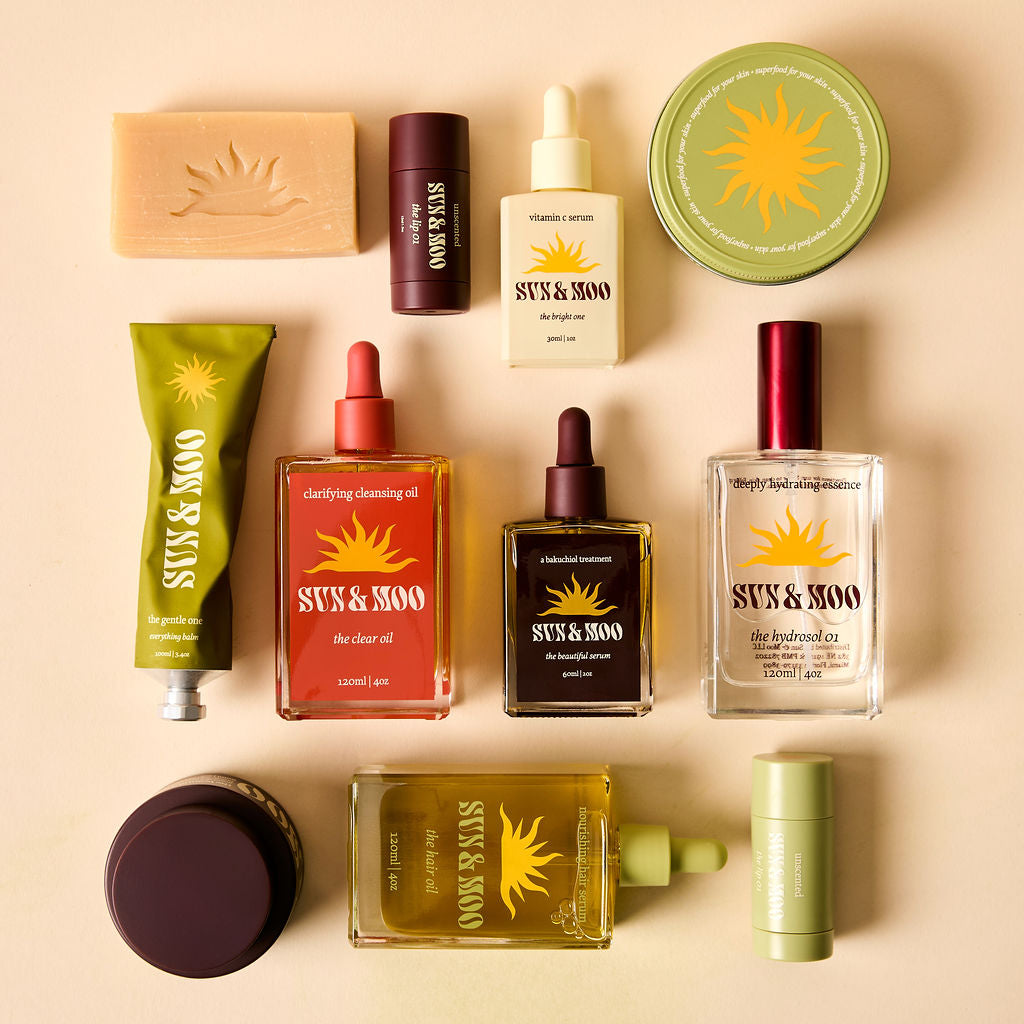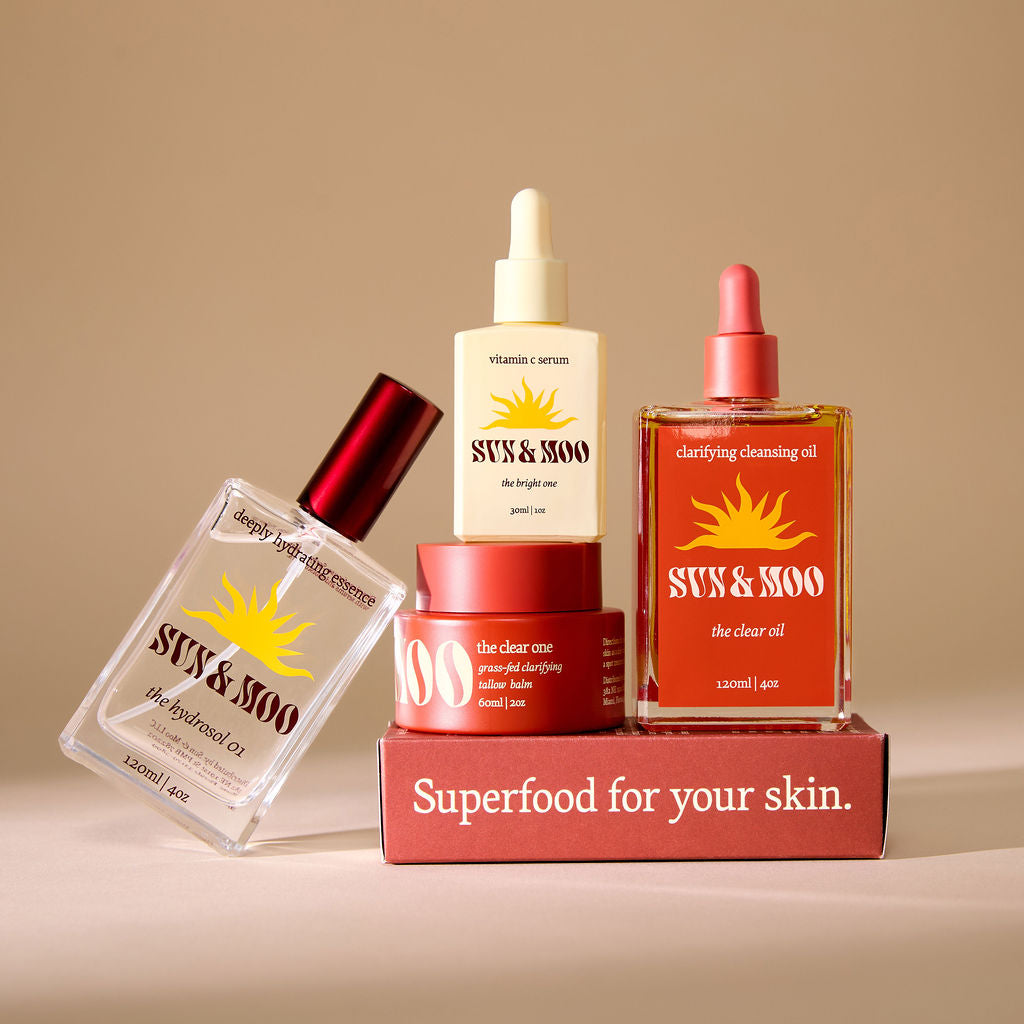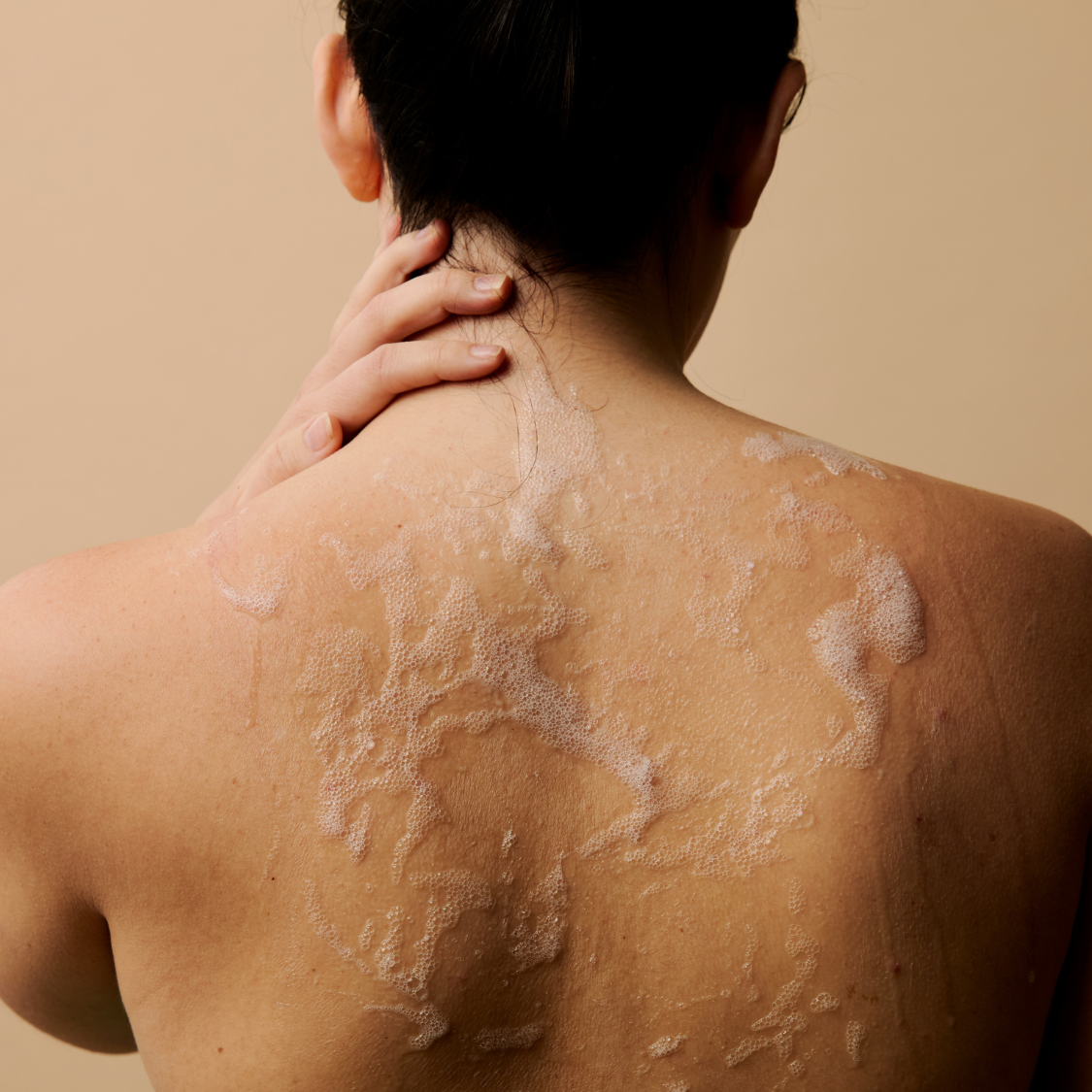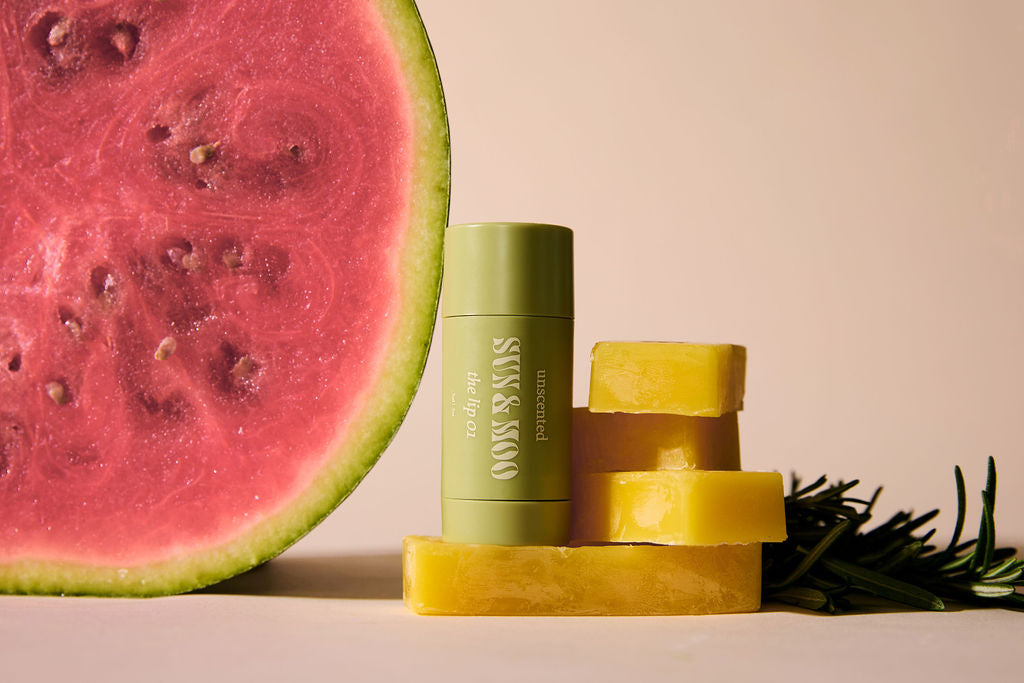There are many factors at play when it comes to skin health and the aging process. One crucial, yet often overlooked, contributor to this process is advanced glycation end products (AGEs). Understanding the impact these inflammatory compounds have on the body and the skin can help you take the very concept of skincare to the next level.
Indeed, a quality skincare routine is highly beneficial for the skin; however, enhancing health from within also has a positive effect on skin. Both are crucial for optimal skin health.
What Are Advanced Glycation End Products (AGEs)?
Advanced glycation end products can be classified into two main types based on their origin: endogenous AGEs and exogenous AGEs.
Endogenous AGEs, meaning they are produced in the body, are formed when excess sugars in the bloodstream attach to proteins and fats in a process called glycation.
The formation of AGEs is a normal metabolic process in the body, but they can have a negative impact on health at high levels. They have the potential to “promote oxidative stress and inflammation by binding with cell surface receptors or cross-linking with body proteins, altering their structure and function” [1].
Exogenous AGEs, those that originate outside of the body, are formed via the Maillard reaction during the cooking process of food, especially when cooked at high temperatures (grilling and frying) and when highly processed [2]. The Maillard reaction is a chemical reaction between amino acids and sugars that is responsible for the browning and flavor that develops once food cooks.
How Do AGEs Impact Skin Health?
AGEs negatively impact the skin and contribute to skin aging in several ways:
- Collagen: AGEs cross link collagen fibers making them rigid and less elastic which can lead to wrinkles and sagging of the skin [3].
- Inflammation: AGEs trigger inflammation which can exacerbate skin conditions like psoriasis [4].
- Oxidative Stress: AGEs produce free radicals [5] which have been shown to damage skin cells and contribute to signs of aging like wrinkles and fine lines [6].
- Impaired Skin Barrier Function: AGEs can change the structure of the skin barrier making the skin more susceptible to environmental irritants and skin dehydration [3].
How to Minimize AGEs in the Body?
Implementing ways to reduce AGEs in the body can greatly impact skin health.
Here are some ways to minimize AGEs in the body:
- Focus on balancing blood sugar. The key is to not consume carbohydrates alone, instead pair your carbs with protein and fats. This is going to slow down the absorption of carbs which will lead to lower levels of sugar in the blood. Movement after meals, like walking, also helps to lower blood sugar!
- Cook most of your foods at lower temperatures such as steaming, boiling or poaching. That doesn't mean you can't enjoy a grilled steak every now and then!
- Marinate your meat in garlic, red wine, lemon juice or olive oil and use herbs like rosemary, thyme, oregano (all of which are high in antioxidants) to reduce AGE levels by up to 50% [7]!
- Prioritize quality sleep. Sleep improves sugar metabolism and insulin sensitivity.
- Monitor your stress levels. Stress can raise blood sugar.
- Exercise on a consistent basis. Exercise has been shown to reduce AGEs in the body [8].
Having a quality skincare routine is an essential part of skincare, but so is prioritizing internal health. As you can see here, implementing a healthy diet and lifestyle can really benefit the skin and help to prevent skin aging.
Give it a try and see if you notice an improvement in your skin!
References:
- Advanced Glycation End Products in Foods and a Practical Guide to Their Reduction in the Diet - PMC (nih.gov)
- Advanced glycation end products - PMC (nih.gov)
- Advanced Glycation End Products in the Skin: Molecular Mechanisms, Methods of Measurement, and Inhibitory Pathways - PMC (nih.gov)
- Advanced Glycation End Products and Psoriasis - PMC (nih.gov)
- Research Advances on the Damage Mechanism of Skin Glycation and Related Inhibitors - PMC (nih.gov)
- What Are Free Radicals And How Do They Affect Skin? | ISDIN
- Foods Cooked at High Temperatures Can Be Unhealthy — Center for Integrative Healing & Wellness (drfabio.com)
- Exercise, Advanced Glycation End Products, and Their Effects on Cardiovascular Disorders








